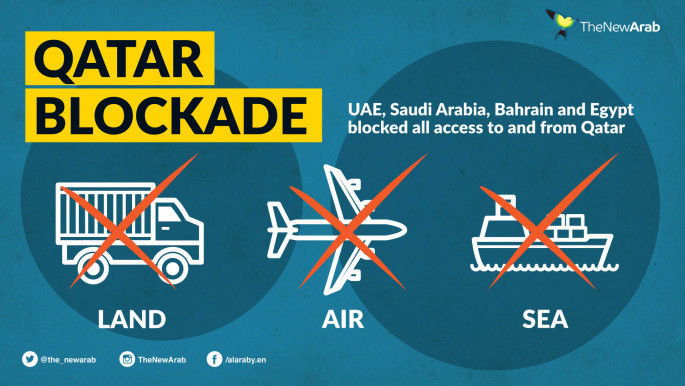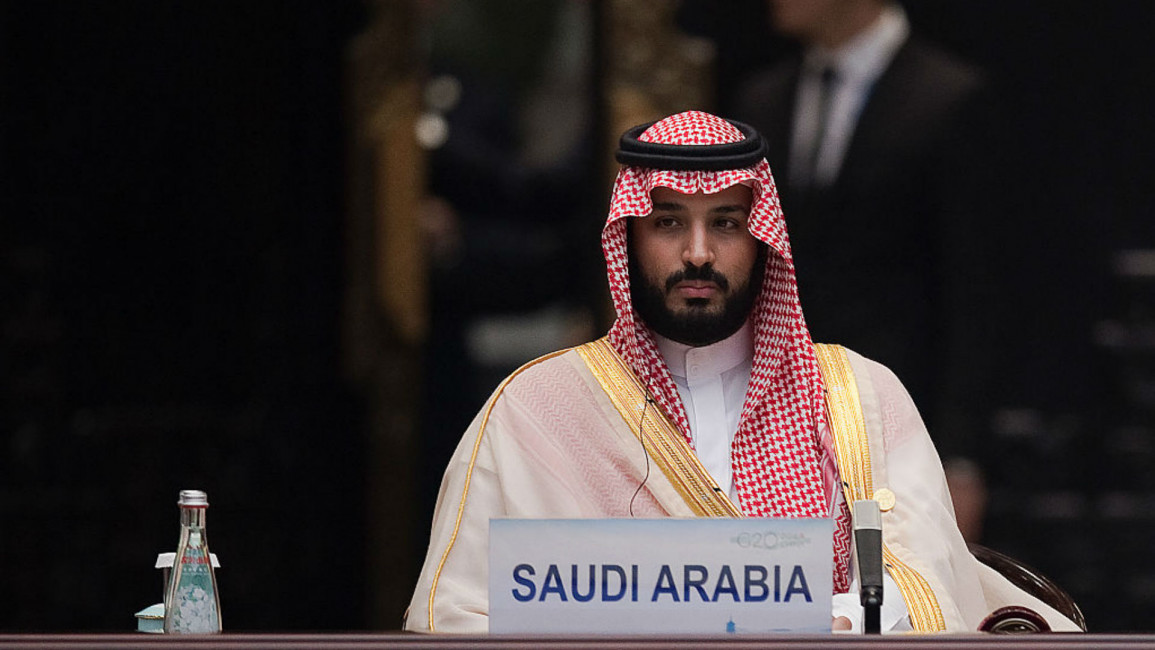
Saudi Arabia and UAE: When bullies come a cropper
When the bullies on the block get carried away with their own sense of self-importance, they follow a clear pattern: Make an unreasonable demand, one that is impossible to meet, and follow that up with a tight deadline along the lines of "have the money by midnight or else".
And so it was that Saudi Arabia's Mohammed bin Salman and his co-bully the UAE's Mohammed bin Zayed, otherwise known as MbZ, presented a list of 13 demands to Qatar.
This was barely three weeks after the Saudis and the Emiratis, together with Bahrain and Egypt had instituted air, sea and road blockades, ordered Qatari diplomats to leave immediately and given Qatari citizens living in their countries two weeks to get out.
The Saudis and the Emiratis were fed up with what they saw as Qatar's broken promises to rein in the broadcaster Al Jazeera, break their ties with the Muslim Brotherhood and fall into line by denouncing Iran.
The immediate consequences for Qatari nationals were dire. Families with mixed nationalities have been split up. Students nearing the end of term uprooted from their schools. Jobs and incomes lost. But that wasn't the end of it, not by a long shot.
The list of demands given the Qataris on 23 June included the shuttering of Al Jazeera, the ending of contacts with the Muslim Brotherhood, a dramatic scaling back of cooperation with Iran, the removal of Turkish troops from Qatar, and submission to monthly external compliance checks.
 |
Families with mixed nationalities have been split up |  |
In other words: unconditional surrender and acceptance of the suzerainty of the Saudis and the Emiratis over Qatar's domestic and foreign affairs. And one other point: you have ten days to comply, though the deadline which was due to expire today, was extended by 48 hours overnight.
Mohamed bin Salman, or MbS as he is called, was already strutting with the success of the Riyadh putsch on 21 June that saw his only rival to the throne, Mohammed bin Nayef stripped of his titles of crown prince and minister of the interior and placed under virtual house arrest. Replacing his rival as crown prince, MbS assumed the role of next in line to his ailing father, King Salman. Two days later came the list.
Qatar quite understandably has refused to submit, and called for dialogue saying they will not compromise their sovereignty and the right to have an independent foreign policy.
| Read more: There are worse things than getting banned by Saudi Arabia... | |
Drop the blockade, withdraw the unreasonable demands and let us have a conversation. A grown up approach, given that the rupture of the six nation Gulf Cooperation Council (GCC) plays into the hands of Iran and elevates the opportunities for Turkey to meddle, to say nothing of the economic damage that will accrue to the GCC at a time of continuing low hydrocarbon prices.
 |
|
| [Click to enlarge] |
But the other side is not in the mood for reasonable behaviour. Clearly MbS and MbZ are enjoying playing the bully role with a vengeance. What they have not thought through are the consequences of their actions. As one economic analyst wryly put it, the Saudis and the Emiratis "have not done a full impact assessment".
Were they to do so, they might reflect that picking a fight with Qatar while engaged in a long and ugly war in Yemen is strategically not the soundest of strategies. The neighbourhood is already tense, why start another fire?
They might see that ripping apart the GCC serves no one's interests save Iran's. They might think too about the global reputational damage their campaign against Qatar is causing them.
I am a frequent critic of treatment of migrant workers in Qatar, building football's 2022 World Cup facilities in often awful circumstances, but you cannot cut it any other way than to see this is a little country being ganged up on.
The Saudis and the Emiratis look to the rest of us as what they are - mean-spirited bullies.
 |
As one economic analyst wryly put it, the Saudis and the Emiratis 'have not done a full impact assessment' |  |
The treatment of Qataris ordered to leave Bahrain, UAE, Saudi Arabia and Egypt is dreadful, and at a time when MbS is attempting to sell an image of Saudi Arabia as open to change and friendly towards innovative thinking, this is a crude and retroactive step.
And this young prince in a hurry should be thinking too of how his rash rush to war in Yemen, which was intended to be a quick win that buttressed his credentials as a warrior, has now dragged on for more than two years with appalling consequences for one of the world's poorest countries.
He should see that his decision to cut public sector pay by up to 40 percent only to change his mind less than six months later and restore the cuts, makes him look weak and indecisive. And that such indecision raises serious questions about his Vision 2030 plan to radically reform the Saudi economy.
He may not yet realize it, but in picking a fight with Qatar he has added a third mistake to the two previous blunders. MbS should realize that in his impatience, he is making many enemies and can ill-afford many more mistakes.
 |
Qatar continues to call for dialogue in language that is moderate and tempered |  |
Where will it all end? That's the question no one has an answer to. The Qataris are confident that they can ride out the economic consequences of the blockade and certainly, and given their vast hydrocarbon wealth and sizable offshore investments, that appears to be the case.
Economists use the term "resilient", noting that LNG (liquefied natural gas) shipments, a significant part of Qatar's revenue, are largely unaffected.
Qatar continues to call for dialogue in language that is moderate and tempered. As a measure of that moderation, they continue to pipe gas, two billion square feet a day, via the Dolphin pipeline to Oman and the Emirates.
They say they have no plans to turn off the tap which provides their neighbours with gas at below market prices. That is the situation now but it could change with particularly damaging consequences to the fragile economy of Oman which has no involvement in this fight. Call that collateral damage.
Meanwhile MbS and MbZ have given no indication of what the "or else" is when the deadline ends without Qatari compliance. That's where the bullies can come a cropper.
The language of escalation has its limits. Will they risk further instability in a hugely unstable region by removing the Qatari emir Tamim? Will they send troops into Doha to achieve a coup?
I doubt it, but in a region where face is everything, they have left themselves precious little room for a graceful climb down.
Bill Law is a former BBC Gulf analyst. Follow him on Twitter: @Billlaw49
Opinions expressed in this article remain those of the author and do not necessarily represent those of The New Arab, its editorial board or staff.
Join the conversation by tweeting to us: @the_newarab




